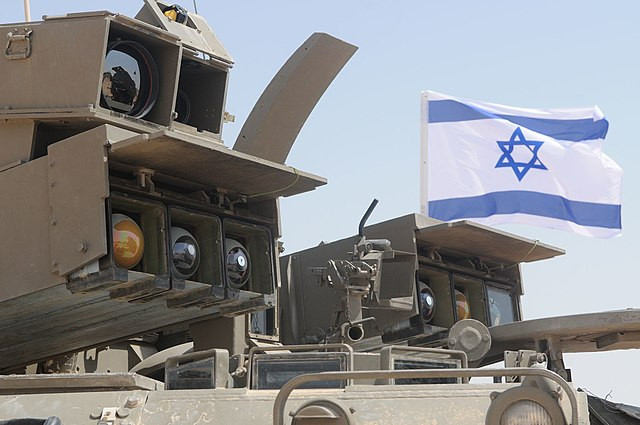Israel's ongoing military campaign in Lebanon escalated on Tuesday with the killing of a senior Hezbollah commander, Ibrahim Qubaisi, in an airstrike on the southern suburbs of Beirut. The strike, which also claimed the lives of five others, targeted Hezbollah strongholds and is part of Israel's broader effort to contain the Iranian-backed militant group as tensions across the region rise. The death of Qubaisi, who played a key role in Hezbollah's rocket division, is a significant blow to the organization, which has faced increasing pressure from Israeli forces over the past week.
The airstrike marks the second consecutive day of Israeli attacks in the Hezbollah-controlled areas of Beirut, heightening concerns that the nearly year-long conflict between Israel and Hamas, which has devastated Gaza, could spill over into a larger war involving Hezbollah and its allies. Hezbollah has been launching rockets into northern Israel in support of Hamas, which is also backed by Iran, intensifying the already volatile situation on Israel's northern front.
The Lebanese health ministry reported that the strike in the Ghobeiry neighborhood of Beirut killed six people and wounded at least 15. The attack targeted a building in the usually busy area, leaving the top floor of a five-story structure severely damaged. Israeli airstrikes on Monday also wreaked havoc in Lebanon, with the Lebanese authorities reporting more than 500 deaths, making it one of the country's deadliest days in recent decades. The relentless assaults have caused panic in Beirut, a city that still bears the scars of the 2006 war between Israel and Hezbollah.
As Israel shifts its focus to Hezbollah after months of conflict with Hamas in Gaza, military leaders have vowed to maintain pressure on the militant group. "The situation requires continued, intense action in all arenas," said Israel's Military Chief of General Staff, Herzi Halevi, after a security assessment on Tuesday. He emphasized that securing Israel's northern border is now a key priority for the Israeli military.
Lebanese authorities stated that 558 people, including 50 children and 94 women, were killed in Israel's airstrikes on Monday, with another 1,835 wounded. Tens of thousands of Lebanese have fled to safer areas as the conflict intensifies. For many in Beirut, the situation is becoming increasingly dire. "We are waiting for victory, God willing, because as long as we have a neighbor like Israel, we can't sleep safely," said Hassan Omar, a resident of Beirut.
Afif Ibrahim, a taxi driver from southern Lebanon, expressed defiance despite the heavy bombardment. "They (Israel) want us to kneel, but we kneel only to God in our prayers; we bow our heads to no one but God," he said, reflecting the widespread sentiment of resistance among Hezbollah supporters.
As the violence escalates, international calls for diplomacy are growing louder. United Nations human rights chief Volker Turk urged all parties with influence to help avert further escalation in Lebanon. "We must find a path to de-escalation," said Turk, as fears of a broader conflict involving regional powers like Iran continue to mount.
White House National Security Adviser Jake Sullivan echoed these concerns, telling MSNBC, "There is still a path forward to de-escalation and a diplomatic solution." Sullivan emphasized the need to prevent a wider war that could draw in Iran and other regional actors, including Hezbollah, Yemen's Houthis, and armed groups in Iraq, all of which have ties to Tehran.
British Prime Minister Keir Starmer also urged restraint, calling for all parties to "step back from the brink" and avoid a further deterioration of the situation. The fear of a wider Middle East conflict, which could disrupt global oil supplies and destabilize the region, has driven diplomatic efforts from multiple countries.
Despite the rising calls for diplomacy, Hezbollah continues to show resilience. Last week, the group suffered a major security breach when thousands of its members' communication devices, including pagers and walkie-talkies, were destroyed in an incident widely attributed to Israel, though the Israeli government has neither confirmed nor denied its involvement.
Hezbollah, founded by Iran's Revolutionary Guards in 1982 to counter Israel's invasion of Lebanon, remains a formidable force in the region, more so than Hamas. While Israel has deployed its advanced military and intelligence capabilities to track and eliminate key Hezbollah figures, including Qubaisi, the group has proven capable of withstanding repeated Israeli assaults.
In a show of force, Hezbollah announced on Tuesday that it had used a new rocket, the Fadi 3, in an attack on an Israeli army base. At the same time, Israeli forces dropped leaflets in Lebanon's Bekaa Valley warning residents not to scan the barcodes on the flyers, claiming that doing so would allow the Israeli military to collect data from mobile phones.




